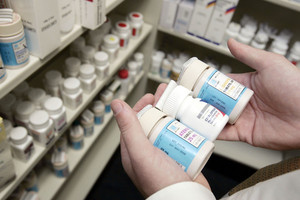On 23 March 2015, the Alliance for Safe Biologic Medicines (ASBM), which represents patients and physicians, as well as originator biological and biosimilars companies in the US, released results of a survey, which showed that physicians ‘support transparent, clear labels with data that enables prescribers to learn about and evaluate the medicines available to their patients’ [1].
Physicians’ views on biosimilars labelling
Home/Reports
|
Posted 17/04/2015
 0
Post your comment
0
Post your comment

The survey, which was carried out prior to the first biosimilar approval, questioned 400 US physicians about what they expected and wanted to see when it comes to biosimilars labelling. Specialists in dermatology, endocrinology, oncology, nephrology, neurology and rheumatology were included in the research, which was carried out via a web-based survey.
The results of the survey highlighted the following:
- 90% of respondents thought that it was important that a product label for a biosimilar clearly indicates that it is a biosimilar.
- 82% of respondents believe it is important that the biosimilar label includes the analytical data developed by the biosimilar sponsor to demonstrate its analytical similarity to the reference product.
- 83% of respondents thought that it was important that the biosimilar label includes the clinical data, if any, submitted to the Food and Drug Administration (FDA) by the biosimilar sponsor to demonstrate that it is highly similar to the reference product.
- 79% of respondents believe it is important that the label explicitly states that specific indications or conditions of use that are approved for the originator product are NOT approved for the biosimilar product.
ASBM Executive Director, Mr Michael Reilly stated that ‘we believe this data provides FDA with clear guideposts for what is necessary to foster physician confidence in biosimilar medicines.’ He added that ‘the survey was conducted prior to the first biosimilar approval and is more consistent with the draft guidance released in 2012 than the label of the first biosimilar product.’
FDA approved its first biosimilar on 6 March 2015. The biosimilar Zarxio (filgrastim-sndz) was approved in the US for the five indications for which US-licensed Neupogen (filgrastim) was approved. FDA has designated a placeholder non-proprietary name for this product – filgrastim-sndz. The agency has stated that this decision should not be viewed as reflective of the agency’s decision on a comprehensive naming policy for biosimilar and other biological products. FDA has also stated that it intends to issue draft guidance on how current and future biological products marketed in the US should be named ‘in the near future’ [2].
This issue of naming is still a hot topic in the US, with campaigners on both sides lobbying FDA [3, 4]. The World Health Organization is considering the use of a biological qualifier (possibly a four-letter code) to distinguish biosimilars [5]. While the GPhA has proposed using manufacturer names to distinguish biosimilars as a compromise [6].
Related article
European doctors have insufficient knowledge of biosimilars
References
1. Safe Biologics. Olsen K. ASBM Labeling Survey. Industry Standard Research. February 2015 [homepage on the Internet]. [cited 2015 Apr 16]. Available from: http://safebiologics.org/resources/wp-content/uploads/2015/03/February-2015-Labeling-Report.pdf
2. GaBI Online - Generics and Biosimilars Initiative. FDA approves its first biosimilar [www.gabionline.net]. Mol, Belgium: Pro Pharma Communications International; [cited 2015 Apr 17]. Available from: www.gabionline.net/Biosimilars/News/FDA-approves-its-first-biosimilar
3. GaBI Online - Generics and Biosimilars Initiative. Physicians believe biosimilars should have different names [www.gabionline.net]. Mol, Belgium: Pro Pharma Communications International; [cited 2015 Apr 17]. Available from: www.gabionline.net/Biosimilars/General/Physicians-believe-biosimilars-should-have-different-names
4. GaBI Online - Generics and Biosimilars Initiative. 32 organizations agree biosimilars should have same names [www.gabionline.net]. Mol, Belgium: Pro Pharma Communications International; [cited 2015 Apr 17]. Available from: www.gabionline.net/Biosimilars/General/32-organizations-agree-biosimilars-should-have-same-names
5. GaBI Online - Generics and Biosimilars Initiative. WHO investigates use of a biological qualifier for biosimilars [www.gabionline.net]. Mol, Belgium: Pro Pharma Communications International; [cited 2015 Apr 17]. Available from: www.gabionline.net/Biosimilars/General/WHO-investigates-use-of-a-biological-qualifier-for-biosimilars
6. GaBI Online - Generics and Biosimilars Initiative. GPhA proposes using manufacturer names to distinguish biosimilars [www.gabionline.net]. Mol, Belgium: Pro Pharma Communications International; [cited 2015 Apr 17]. Available from: www.gabionline.net/Biosimilars/General/GPhA-proposes-using-manufacturer-names-to-distinguish-biosimilars
Permission granted to reproduce for personal and non-commercial use only. All other reproduction, copy or reprinting of all or part of any ‘Content’ found on this website is strictly prohibited without the prior consent of the publisher. Contact the publisher to obtain permission before redistributing.
Copyright – Unless otherwise stated all contents of this website are © 2015 Pro Pharma Communications International. All Rights Reserved.
Guidelines
US guidance to remove biosimilar comparative efficacy studies
New guidance for biologicals in Pakistan and Hong Kong’s independent drug regulatory authority
Policies & Legislation
EU accepts results from FDA GMP inspections for sites outside the US
WHO to remove animal tests and establish 17 reference standards for biologicals
EU steps closer to the ‘tailored approach’ for biosimilars development

Home/Reports Posted 21/11/2025
Advancing biologicals regulation in Argentina: from registration to global harmonization

Home/Reports Posted 10/10/2025
The best selling biotechnology drugs of 2008: the next biosimilars targets








Post your comment